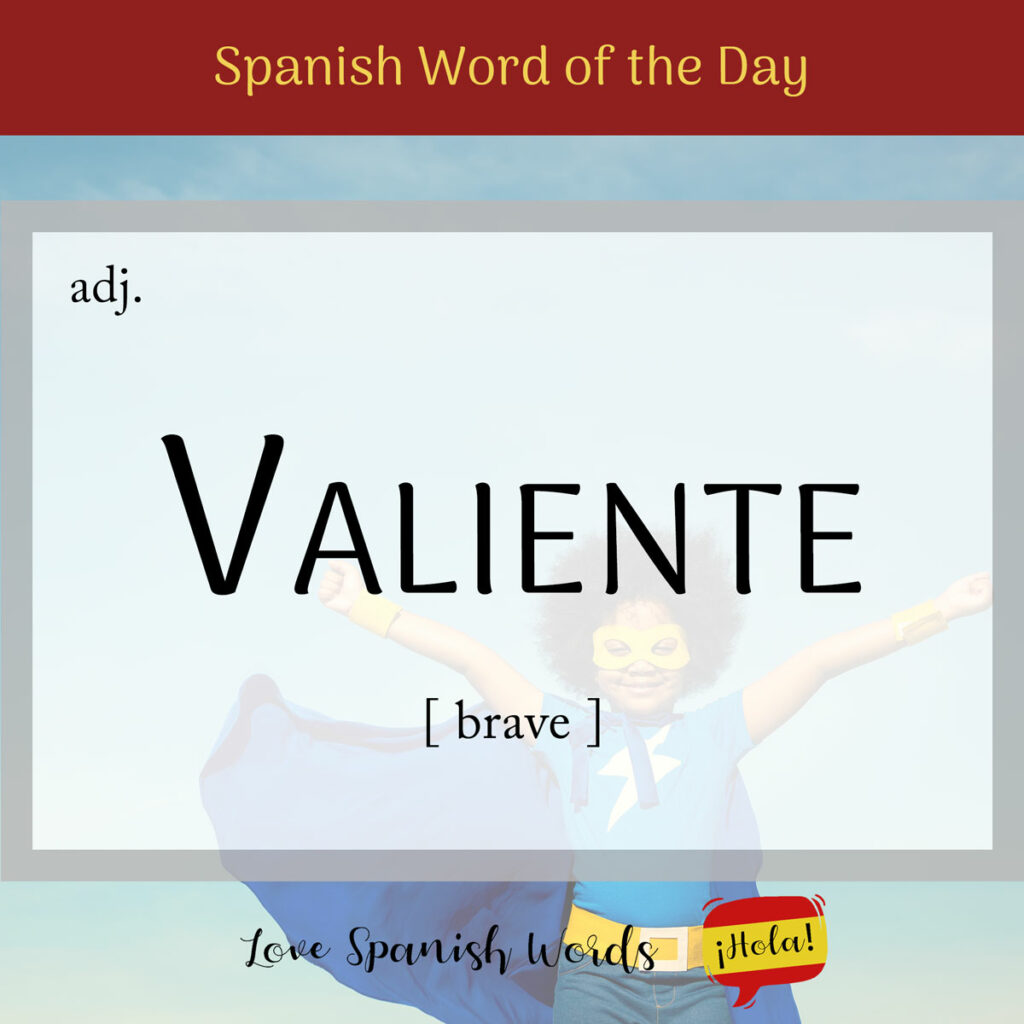The Spanish word valiente comes from the Latin adjective valens, an active participle of the Latin verb valere, which means to be strong or to have power. As an adjective, it means brave or to have courage and strength.
Latin American Pronunciation
European Pronunciation

Valiente is an invariable adjective, meaning it is not gendered with its subject. It can however be plural and will become valientes.
Valiente describes a person who shows bravery and confronts hard situations or dangers with determination and without fear.
Figuratively, it is used to describe someone with physical bravery or someone who shows coraje moral (moral courage), such as facing adversity or defending their principles and valores (values).
El bombero valiente rescató al perro de las llamas.
The brave firefighter rescued the dog from the flames.
Words related to valiente include:
- valor = courage
- valentía = bravery/courage
- valientemente = bravely
- valentón/a = brave (female and masculine version)
The word valor is a masculine noun that means courage, but other definitions include value and worth. Tener valor means to have courage. For example, Juan tuvo mucho valor al enfrentar al ladrón (Juan had a lot of courage when facing the thief).
The word valentía is also a masculine noun. It is used as a characteristic a person has. For example, El hombre tiene mucha valentía (The man has a lot of bravery/courage).
Valientemente is an adverb and is used to describe how the action was done. For example, La niña interpretó valientemente la canción frente al público (The girl bravely performed the song in front of the audience).
Valentón and valentona is an adjective in its feminine and masculine form. It is used the same way as valiente but not as common. Valiente is the preferred adjective in Spanish for the word brave. One way to use it is: Eres un valentón por rescatar a la señora del río (You are brave for rescuing the lady from the river).
Jessica fue muy valiente al hablar acerca de las injusticias contra las mujeres.
Jessica was very brave to speak out about injustices against women.

Synonyms for valiente include:
- bravo/a = brave (with connotation to being bold)
- audaz = bold
- intrépido/a = bold
- corajudo/a= courageous/brave
Antonyms for valiente include:
- cobarde = coward
- miedoso/a = fearful
- temeroso/a= fearful
The word valiente is also used to refer to a strong taste in reference to food. For example, when cheese has a strong taste you can say, El queso está valiente. (The cheese is brave.) It’s not as common to use the word this way, but if you hear it you’ll know it’s referring to a strong taste.
Valiente is often used in literature, history, folklore, and mythology. There are many stories with main characters who demonstrate valentía (bravery).
In Greek mythology, we have characters like Aquiles (Achilles), Zeus (Zeus) and Hércules (Hercules). In Spanish stories, there is Don Quijote de la Mancha.
Spanish idiomatic expressions featuring ‘valiente‘
Echarle valor
Literal translation: to pour/throw courage
English meaning: to confront a difficult situation with courage/bravery
Ser valiente como un león
Literal translation: to be brave like a lion
English meaning: to be extremely brave, just as a lion is
Ser valiente como el oro
Literal translation: to be brave like gold
English meaning: to be very brave, a precious value comparable to gold

